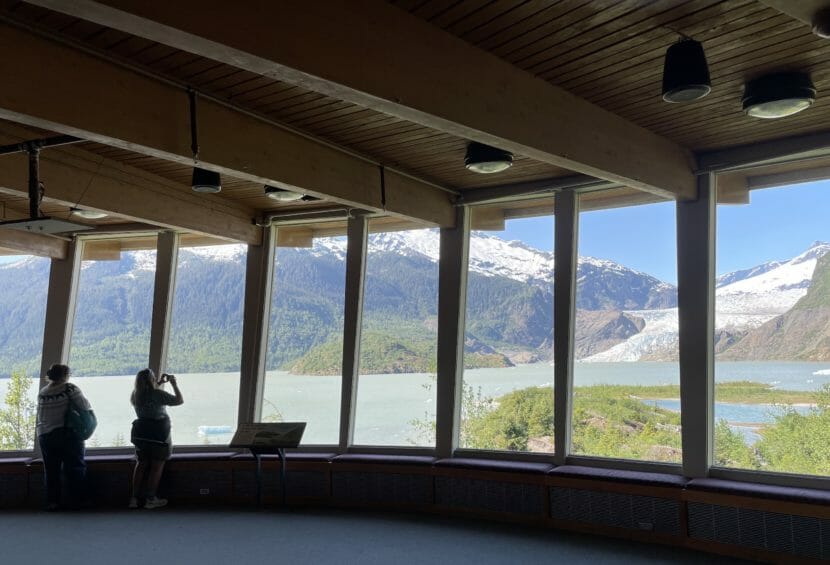
The Central Council of the Tlingit and Haida Indian Tribes of Alaska and the U.S. Forest Service will collaborate on managing the Mendenhall Glacier Recreation Area going forward, with plans to better educate visitors on Alaska Native culture.
Tlingit and Haida President Richard Chalyee Éesh Peterson said the Tribe is excited to share more cultural history with the nearly one million tourists who pass through the Mendenhall Glacier Visitor Center each year.
“The people who go there want to learn about the glacier. They also want to learn about the people,” Peterson said. “And if you know anything about Lingít culture, we have songs, stories, history about migrating over, under and through the glaciers.”
The Forest Service and Tlingit & Haida signed a memorandum of understanding last week, which outlines a mutual commitment to collaborating on resource management and planning in the recreation area.
Kevin Hood, the regional tribal relations programs manager for the Forest Service, said the agreement builds on the agency’s commitment to strengthening federal and tribal cooperation across the region.
“We are overdue for having better representation of the Alaskan Native perspective,” Hood said. “It’s part of upholding our nation to nation relationship with these sovereign Tribal nations.”
At the glacier, the first priority will be including more Lingít culture, history and language in the recreation area’s programming. That will likely include updating signs and displays on trails and in the visitor center. But according to Hood, the memorandum of understanding could also pave the way for collaboration on trail maintenance, watershed restoration and caring for the fish and wildlife in the area.
In the short term, the agreement calls for the Forest Service to hire Tribal citizens to work as educators and guides.
“Who better to tell our stories than us?” Peterson said. “Aak’w Kwáan people talking about Aak’w Kwáan, you know?”